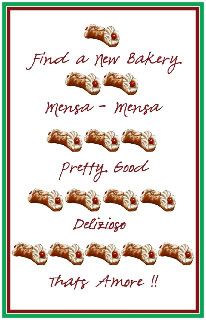
Hotel On The Corner Of Bitter And Sweet
Jamie Ford
Paperback 320 pgs
Ballentine Books
Read for book club
Amazon's Blurb -
Ford's strained debut concerns Henry Lee, a Chinese-American in Seattle who, in 1986, has just lost his wife to cancer. After Henry hears that the belongings of Japanese immigrants interned during WWII have been found in the basement of the Panama Hotel, the narrative shuttles between 1986 and the 1940s in a predictable story that chronicles the losses of old age and the bewilderment of youth. Henry recalls the difficulties of life in America during WWII, when he and his Japanese-American school friend, Keiko, wandered through wartime Seattle. Keiko and her family are later interned in a camp, and Henry, horrified by America's anti-Japanese hysteria, is further conflicted because of his Chinese father's anti-Japanese sentiment. Henry's adult life in 1986 is rather mechanically rendered, and Ford clumsily contrasts Henry's difficulty in communicating with his college-age son, Marty, with Henry's own alienation from his father, who was determined to Americanize him. The wartime persecution of Japanese immigrants is presented well, but the flatness of the narrative and Ford's reliance on numerous cultural cliches make for a disappointing read.
*****
I can't quiet agree with the above blurb. This turned out better than I thought. Very much in the vein of Water For Elephants
Henry Lee is 12, almost 13 and has not had an easy childhood. Growing up during WWII, his father has makes him attend an all "white" school. With the bombing of Pearl Harbor, his dad has him wear a pin saying "I'm Chinese" so he isn't mistaken for a Japanese boy. It doesn't help. He's teased, harassed, bullied and beaten up, and he keeps it all to himself. His Mom and Dad don't speak English, yet he isn't allowed to answer in Chinese, so he really doesn't speak to them other than huh huhs and no's or yes.
His only friend is Jazz sax player Sheldon, till he meets Keiko while working in the school cafeteria. The two work together and a poignantly sweet bond is formed. They go to an all black jazz bar to hear Sheldon play, and then get the crumbs scared out of them when the F.B.I raids the place, taking the Japanese patrons away. Keiko is horrified. The story takes us through the dramatic rounding up of Japanese families and their subsequent relocation in internment camps. Henry's home life doesn't get easier as his father hates the Japanese for their war with China. After finding out about the two's friendship his father disowns him.
Peppered throughout the book you find Henry's relationship with his college age son Martin is strained and he mourns the passing of his wife Ethel whom he lovingly cared for as cancer ravished her body.
Somewhat sad when you think of the could have beens, I give it 3 cannolis















Actually that sounds kind of interesting. I have Water for Elephants but haven't got to it, it stays on the possible soon list, lol
ReplyDeleteGreat review though, i'm interested, the cover has always intrigued me.
You've been tagged! Go here to see what to do:
ReplyDeletehttp://readingwithoutrestraint.blogspot.com/2010/09/ive-been-tagged.html
I liked this book okay. I had to read it for book club and my mom just loved it so much. Maybe I missed something that she didn't. However, I will say that the book club conversation was quite scintillating. Henry's father was a jerk and really most of the story just frustrated me. Although, I did learn a lot from the book though. Turns out my Aunt (mom's brothers wife) had to live in one of those intern camps and I had no idea. I like when books bring out interesting things like that.
ReplyDeleteJen
In the Closet With a Bibliophile
@ Marce, it was interesting, learning a bit of history with it. Water For Elephants was better, great book.
ReplyDelete@ Jen, the discussion we had last night was great!! It made for a good book club book. His father was harsh, but when you put it in context of the culture you understand it better.
Ok miss Julie, I'ma a going ;)